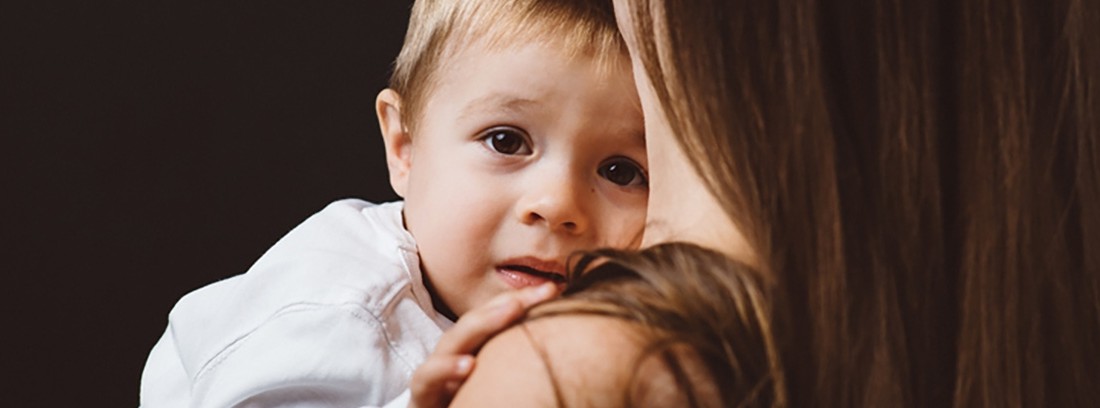Understanding and Addressing Childhood Fears

What are children's fears?
Fears in children are reactions of alarm in the face of unknown situations or that they perceive as dangerous. They are normal in their evolutionary development and are only overcome if they are confronted, which is why it is important to equip the child with the necessary skills to do so. As soon as a child successfully copes with a feared situation, he gains both confidence and security and may be better able to face new fears.
The usual reactions of children to childhood fears are the same as those that an adult can show, although the intensity of the response may vary. A child usually expresses fear through behaviors such as crying, yelling, irritation, running away or avoiding a certain situation, tremors, sweating, urging to urinate, heart racing or muscle tension, among many others.
There are various situations in which a child may feel fear and these tend to change with age and developmental level. In general, in childhood, fears related to unknown or strange people, certain animals, getting hurt, sudden loud noises, the dark, certain fictional characters (such as witches, monsters or ghosts), etc. predominate.
How should parents act in the face of their children's fear?
- Parents' attitude is essential to prevent a certain fear from persisting for too long or from becoming worse. They should not overprotect the child in the face of a feared situation (for example, holding him in his arms or taking him out of the situation) since in this way they are confirming to the child that the situation is really dangerous. Instead, the general attitude should consist of progressively promoting greater autonomy in the child, enabling him to face situations on his own, and thus ensuring that he gradually gains independence and security.
- Avoid getting angry with the child or ridiculing him because of the fear he feels.
- It is important to be able to talk with the child, giving him the opportunity to express his fear openly and at the same time provide reassuring explanations that help him progressively realize that it is an unfounded fear. Avoid showing him excessive attention or concern due to the fear he is expressing.
- It is possible to show him with his own attitude that nothing really happens, becoming valid models for the child or facilitating experiences in which he observes other children facing, without problem, the feared situation.
- It is essential as parents not to get impatient and give them time to overcome a certain fear. Not pressuring him or forcing him to abruptly face the feared situation is a good attitude in these situations since, if this way of proceeding is not carried out, many times the opposite effect to the desired one will be achieved, that is, an increase in his fear.
- Fear can be perceived as a good opportunity to teach the child to face it. The most advisable method is to propose a gradual approach to the feared situation, progressively increasing the time, difficulty or intensity of it. Before any small effort and evolution of coping that the child makes, it is important to praise or reward them.
- We must be especially attentive in cases in which a certain fear lasts a long time, provokes responses of great intensity, causes significant discomfort in the child or interferes excessively in their daily life, since in those circumstances it could be necessary seek professional help from a child psychologist.
How can we prevent childhood fears?
Parents can take different measures into account so as not to arouse unnecessary feelings of fear in children:
- Use a positive style of education, prioritizing kindness, motivation and respect, before making use of punishment and threat.
- Avoid scaring the child or using fear as a form of control (phrases such as: "If you don't behave well, the coconut will come", which should be dispensed with).
- Monitor and control the programming that the child watches on television, paying special attention to content of terror, drama or violence.
- Do not tell stories or horror stories, or focus especially on the most fearsome aspects of traditional tales. On the contrary, it is a good practice to tell him stories or stories in which children like him face and overcome certain fears or difficulties.
- Teach him to solve by himself the small difficulties that may arise in his usual daily dynamics.
- Praise any little brave behavior.
(Updated at Apr 14 / 2024)